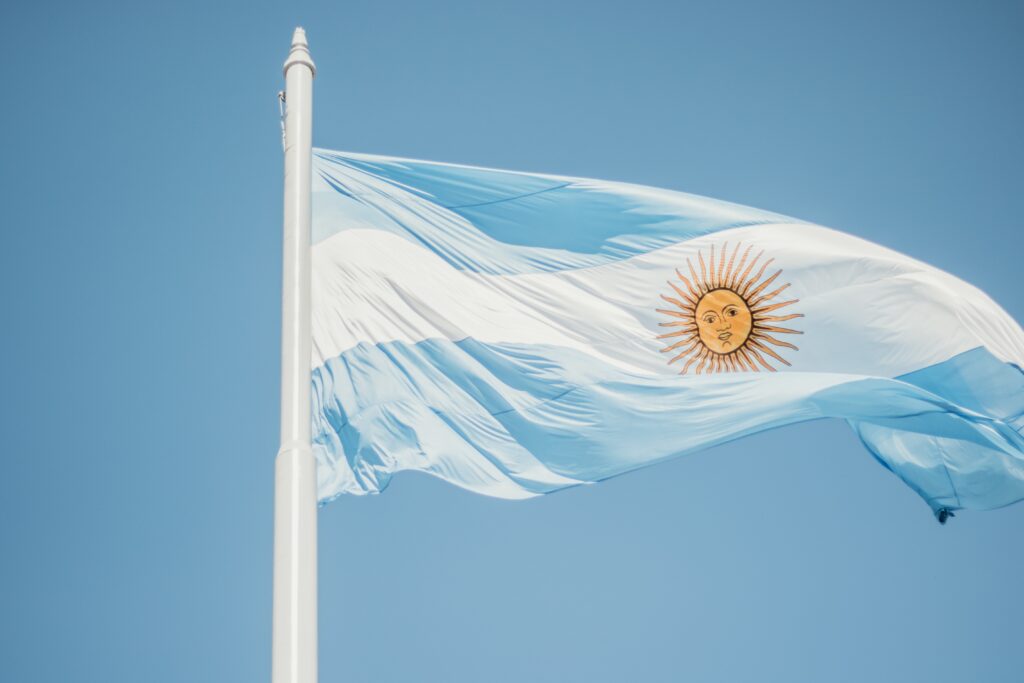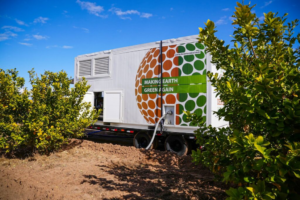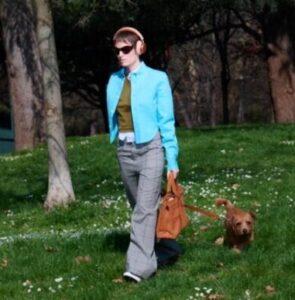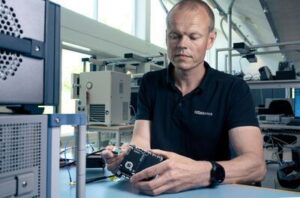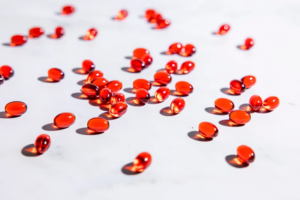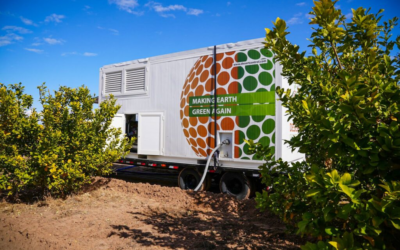The soybean price in Argentina is set on the Bolsa de Comercio de Rosario
The Argentinian stock exchange, Bolsa de Comercio de Rosario (Rosario Stock Exchange), was founded on August 18, 1884 as a non-profit civil association, a legal form that it maintains to this day. It began its activities by offering its facilities for the development of concentration markets that favored the confrontation between supply and demand for products in general and allowed for greater transparency of prices.
When the exchange was founded, trade in agricultural products was already organized in the Argentine Republic, which is why the concentration of the institution’s buying and selling activities occurred gradually. In this sense, it should be noted that in 1878 the first organized export of grain from Argentina took place. It consisted of a sale of wheat to Glasgow (Scotland, UK) shipped from Rosario itself.
In 1893, the creation of a “Cereal Arbitration Commission” within the stock exchange, which in 1899 was renamed the “Arbitration Chamber”, to which broad functions were assigned in terms of forming standards for negotiation, designing buy and sell tickets, determining current day prices and, basically, acting as a “friendly broker” to solve commercial problems that may arise. After all, the operating system did not require then and until a few years after that there was an organization for the liquidation and guarantee of companies.
Submarkets
Five submarkets are part of this institution:
Mercado Físico de Granos de Rosario
ROSGAN (Mercado Ganadero de Rosario S.A.)
MATBA-ROFEX (Ex – Mercado a Término de Rosario S.A.)
MAV (Mercado Argentino de Valores S.A.)
ROSPORC (Mercado Digital Porcino)
Rosario physical grain market
The traditional physical grain market on the stock exchange is the most important in Argentina in volume of operations, and its prices are a mandatory national and international reference. 80% of Argentinean cereal and oilseed production is marketed there, through a large number of operators in the traditional daily wheel.
Soybeans are the main product traded in this market and have made Rosario the most powerful center for physical marketing of this oilseed in the world. More than 80 percent of the installed capacity of the Argentine oil industry is located in its area of influence and the same happens with the private port terminals, which ship more than 90 percent of the exports of soybeans and their derivatives.
Supply is handled by grain brokers and 2nd Degree cooperatives, and demand comes from exporters, oil producers and mills. Deals are agreed verbally, without prejudice to the subsequent registration of tickets on the exchange.
The so-called “chamber prices” arise from this operation, which are set daily by the Grain Arbitration Chamber through a commission made up of all the sectors operating on this market. These prices are indicative and of non-compulsory use, except by agreement between the parties.
The Chamber acts as an arbitration court of recognized suitability and impartiality to resolve disputes between parties. The causes that have been subjected to its treatment for more than a century are resolved quickly and cost-effectively.
With similar functions, in matters concerning vegetable oils and by-products from the manufacture of oils, it includes the Arbitration Chamber for Vegetable Oils and By-Products.
ROSGAN (Rosario Livestock Market)
This livestock market is the result of the union of different actors in the livestock marketing system, which, through the use of modern communication technologies, brings supply and demand closer in time. The use of the televised system of long-distance farm auctions makes it possible to reconcile productions from the hinterland with the requirements of large urban centers and exports, using federal criteria.
To achieve a successful auction system without the physical presence of the cattle, it was imperative to have tools that provide security and accurate information to the operators. For these reasons, procedures were implemented to ensure proper filming and certification of the lots to be auctioned. This task is carried out by the certified certifiers in each farm.
Once the information on all items to be auctioned is available, the sales order is compiled and published in a catalog and on the Mercado Ganadero SA website. In this way, the images and details of the herds put up for auction are made available to potential buyers in good time.
The auction is broadcast live by Mercado Ganadero SA under the Rosario Stock Exchange. Buyers can submit their offers either in person or by telephone using a call center system. To participate in the auction, buyers must first register in the register of participants maintained by Mercado Ganadero SA.
MATBA – ROFEX (Ex – Term Market of Rosario S.A.)
ROFEX S.A., whose name is an acronym for Rosario Futures Exchange, is the largest futures exchange in Argentina. The futures exchange was founded in 1909 under the name “Mercado General de Productos Nacionales del Rosario de Santa Fe S.A.”2 and was later known as Mercado a Término de Rosario S.A..
It currently has two operational divisions:
Agricultural Derivatives Division:3 Negotiates futures and options contracts on soybeans, wheat and corn.
Financial Derivatives Division:4 Trades futures and options contracts on dollars, gold, oil, Argentine bonds, Merval Index Future and LEBAC Future.
Due to the volume traded, especially in dollar contracts, ROFEX is today the most important futures market in the country.
It is the only futures market in South America that registers, clears, settles and guarantees its contracts through a futures and options clearing house, Argentina Clearing SA, the first and only futures and options clearing house in Argentina, authorized to operate by the National Securities Commission of the Argentine Republic and which has one of the highest credit ratings in the country (Standard & Poor’s rAA), putting it on par with the most renowned clearing houses in the world.
In 2019, the merger between Argentina’s two centenary futures markets, ROFEX S.A., was completed. as the spin-off company and Mercado a Término de Buenos Aires S.A. (Matba) as the absorption company, naming the new absorption company Matba-Rofex S.A. This integration allowed the market to grow, both in volume and liquidity, providing greater efficiency, better technology and the quality of agricultural and financial products.
MAV (Argentine Stock Market S.A.)
The Argentine stock market, or MAV, was born from the integration and merger of the Rosario and Mendoza stock markets.
Its predecessor, the Mercado de Valores de Rosario, was founded in 1927 under the name ‘Mercado de Títulos y Cambios del Rosario’. The Mercado de Valores de Rosario traded securities, mostly bonds and shares.
MAV currently specializes in negotiating deferred payment checks and financial trusts.
It records, clears and settles daily the transactions arranged by its agents and guarantees to them the fulfillment of the obligations assumed.
ROSPORC (Swine Digital Market)
The Porcine Digital Market, or ROSPORC, was born from an internal development of the institution, launched in 2020.
Rosporc is the first electronic trading platform for pigs in Argentina. A fully digital market that allows users to perform buying and/or selling transactions on pigs with total ease.
It is a platform that streamlines operations, providing new opportunities for producers and greater predictability for an industry that is not very institutionalized. It leaves room for negotiation to form reference values for each type of activity.
About the Viking
With Viking’s signals, you have a good chance of finding the winners and selling in time. There are many securities. With Viking’s autopilots or tables, you can sort out the most interesting ETFs, stocks, options, warrants, funds, etc.
Click here to see what Vikingen offers: Detailed comparison – Stock market program for those who want to become even richer (vikingen.se)
